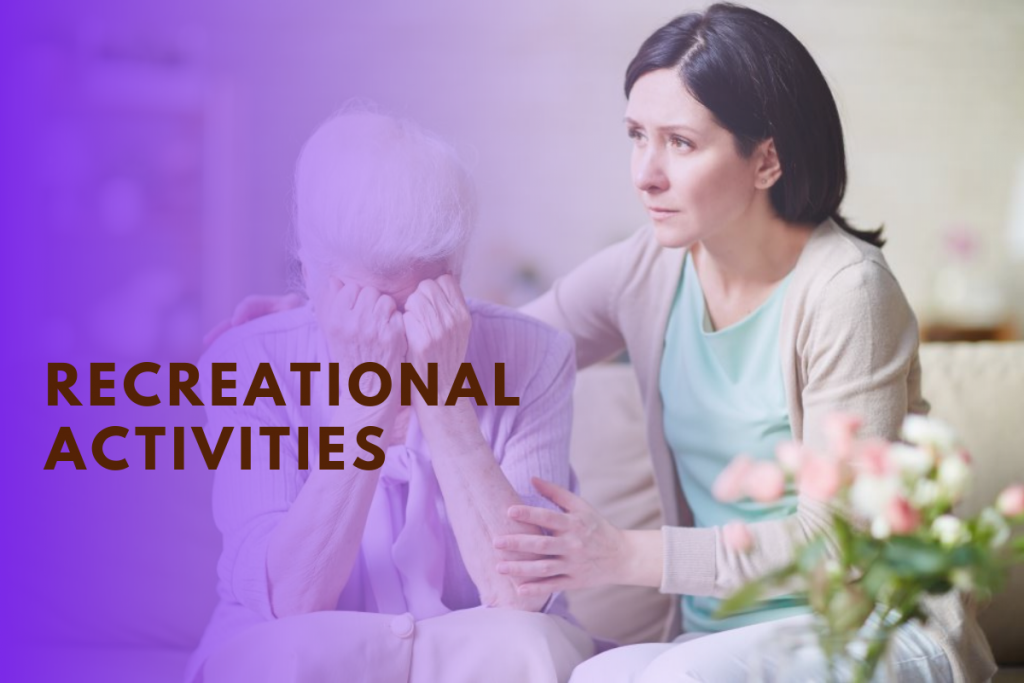Dementia & how it affects people
Anybody with experience with biology or pop culture references will have heard the term dementia at least once in their life. But despite how the term is used, Dementia is not a disease. Neither is it a single term. It have recreational activities. It is actually an overall term that describes a group of symptoms associated with a decline in memory or other thinking skills severe enough to reduce a person’s ability to perform everyday activities.
Dementia is a pretty broad term. And unlike popular belief it’s not limited to only loss of memory. It causes loss of motor functions of other parts of the body. The most common kind of dementia is Alzheimer’s where the patient’s memory steadily declines until he is unable to perform daily activities. Severe cases of Alzheimer’s may reduce the patient’s memory span to less than a day, even a few hours sometimes. Almost 60-80 percent of dementia is Alzheimer’s. Vascular dementia is another type of dementia that commonly occurs after a stroke. This type of dementia may leave a patient unable to move a certain part of their body or a partial disfigurement of the body or face.
Let’s give an example for better understanding. Patient A is suffering from a type of dementia called “Imaginary dementia”. He is only 20 years old, it is almost impossible for his brain to deteriorate at such an early age. But due to Alzheimer’s disease the patient is starting to lose his memory at an early age. Further analysis can confirm age has nothing to do with Alzheimer’s disease, even though older people are affected recreational activities by it mostly but it can affect the younger people as well.
There are many symptoms of dementia; at least two of the following core mental functions must be significantly impaired to be considered dementia:
- Visual perception & Memory
- Communication and language
- Ability to focus and pay attention
- Reasoning and judgment
Dementias can be progressive. Symptoms can start out slowly and then gradually increase and get worse. A person can be born with low IQ. But being Stupid & dementia are different as dementia is much more extreme and shows with age. But the slow decline of memory or motor functions may not be visible to everyone. But can slowly start beings so to people living near the patient. According to Weisberg’s system there are 7 stages to how dementia affects a person:
- Stage 1: No Impairment.
- Stage 2: Very Mild Decline.
- Stage 3: Mild Decline.
- Stage 4: Moderate Decline.
- Stage 5: Moderately Severe Decline.
- Stage 6: Severe Decline.
- Stages 7: Very Severe Decline.
Death by Alzheimer’s is possible as well. However, it’s not Alzheimer’s that directly causes death The patient’s frail body in likelihood doesn’t have the ability to cope with infection and other physical problems due to the progress of dementia. In many cases death may be hastened by an acute illness such as pneumonia.
Dementia is caused by damaged brain cells.. For example, in Alzheimer’s disease, high levels of certain proteins inside and outside brain cells make it hard for brain cells to stay healthy and to communicate with each other.
While most changes in the brain that cause dementia are permanent and worsen over time, thinking and memory problems caused by the following conditions may improve when the condition is treated or addressed:
- Depression
- Medication side effects
- Excess use of alcohol
- Thyroid problems
- Vitamin D
There are treatments available for dementia patients. The treatment depends on where it is affected. Sadly no actual cure has been discovered that can slow or stop dementia, only medication that can temporarily improve the symptoms. Further research and development is needed for an actual cure. Therefore, prevention is the only way to avoid dementia. A healthy diet with sufficient sleep, low stress & low to zero alcohol consumption may help brain cells function longer and better preventing dementia. With little effort dementia can be prevented. If a person reads good books, comics, does extracurricular activities regularly.
Recreational Activities

1. Music therapy
Music is probably a universal solution to if not every, but to most situations that concerns the state of mind. Music is an amazing way to relax the mind and alleviate stress and discomfort. Cheerful music can lift the spirits up of the patients if they are depressed or upset. Music works like a charm if you want to evoke their memories because music creates a tranquil mind. Besides calming the mind, you can also perform various music bases activities with them like karaoke, sing along challenge and other group activities. It will also help them socialize with other people by dancing and group singing.
2. IQ Games.
Letting your patients play games that tinkles with their mind is a great recreational activity as well as good method to evoke memories. Games such as puzzle or simulation can be of great entertainment as well as using their mind. Puzzles are a great help for dementia patients since the activity can help enhance their cognitive skills.
Try picking a puzzle that has something realistic in it, like a place or scenery; don’t just give animals or animation or anything related to it. By giving them a real life scenario (same goes simulation games), you are helping their minds to synchronize with reality. Other leisure games such as chess, scrabble or domino are great options to let them play as well.
3. Household chores.
Household chores such as cooking or lawn-mowing or washing their own clothes can be of recreational activities too IF they enjoy doing it! Some dementia patients enjoy cooking or baking as much as other recreational activities, some consultants feel reluctant about giving them an option to cook due to potential injury, but this fear is mostly overrated since cooking can make them cheerful and lift their spirits up.
Those who enjoys cooking takes it as a fun activity and not just as some sort of work, if you let them enjoy what they do, their brain enhances their capability to do more stable work. Other chores are just as much as fun if they think of it as fun!

Leave a Reply